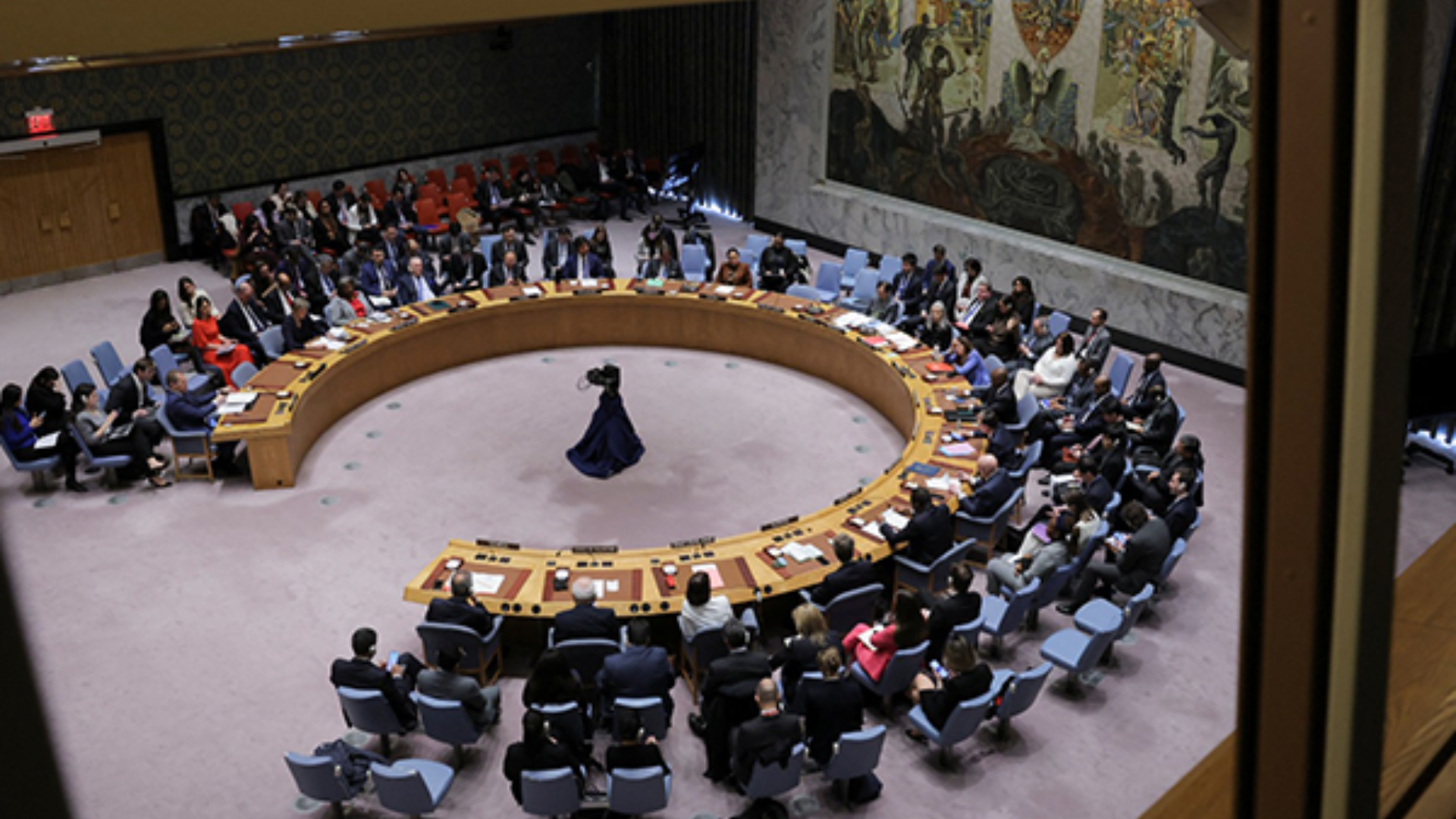On Thursday, Russia wielded its veto power at the United Nations, obstructing a crucial resolution aimed at renewing an independent panel of experts tasked with investigating North Korea’s violations of United Nations Security Council (UNSC) sanctions, according to a report by CNN. This move, occurring amidst escalating tensions between Moscow and the West over the conflict in Ukraine, underscores a significant shift in dynamics as North Korea emerges as a crucial supplier of munitions to Russia.
The renewal of the independent panel of experts, responsible for scrutinizing North Korea’s adherence to UNSC sanctions, faced a roadblock due to Russia’s intervention. Historically, Russia had supported international sanctions and UN investigations into North Korea’s illicit weapons program. However, amid the Ukraine crisis, there has been a notable pivot in Russia’s stance, leading to increased reliance on North Korea for munitions, as reported by CNN.
North Korean leader Kim Jong Un’s relentless pursuit of expanding Pyongyang’s ballistic missile program has drawn international condemnation. Numerous tests, including those of long-range intercontinental ballistic missiles capable of reaching the mainland United States, have heightened tensions on the Korean Peninsula. Despite previous support for sanctions, Russia’s current stance reflects a strategic alignment with North Korea amidst geopolitical turmoil.
Russian Ambassador to the UN, Vassily Nebenzia, defended the veto by questioning the relevance and efficacy of UN sanctions on North Korea. Nebenzia argued that the sanctions have failed to achieve their intended objectives since their inception in 2006, asserting that they are detached from reality. Moreover, he expressed Russia’s concerns about a coalition of countries, led by the US, aiming to strangle Pyongyang, which directly impacts Russia’s national security interests.
The repercussions of Russia’s veto extend beyond diplomatic circles, casting doubts on the effectiveness of the international non-proliferation regime. Despite the ban on arms transfers to or from North Korea under UN sanctions, reports indicate North Korea’s significant role as a munitions supplier to aid Russia’s efforts in Ukraine. South Korea’s defense minister revealed that North Korean munitions factories are operating at full capacity to supply armaments to Russia, including millions of artillery shells. Additionally, Ukraine has reported discovering debris from North Korean-made ballistic missiles following attacks on its targets, underscoring the gravity of the situation.
The vote in the 15-member Security Council saw 13 members in favor of renewing the panel of experts’ work, with Russia opposing and China abstaining. However, Russia’s exercise of veto power led to the resolution’s failure, eliciting deep concern from other members of the Security Council. The British Ambassador to the UN, Barbara Woodward, criticized Russia’s veto, highlighting its detrimental impact on North Korean people and the efficacy of sanctions. She accused Russia of seeking freedom to evade and breach sanctions for its weapons procurement, undermining the integrity of the international non-proliferation regime and the Council’s credibility.
US Deputy Ambassador to the UN, Robert Wood, condemned Russia’s action, questioning the rationale behind blocking the approval. Despite the setback caused by Russia’s veto, advocates for a robust non-proliferation regime remain steadfast in their commitment to addressing the threats posed by North Korea’s weapons program. South Korea’s Foreign Ministry also condemned Russia’s decision as irresponsible, echoing the international backlash against Moscow’s move.
In conclusion, Russia’s veto at the United Nations has impeded efforts to investigate North Korea’s violations and underscores the complex geopolitical dynamics at play amidst escalating tensions in the region. The repercussions of this decision reverberate globally, highlighting the need for continued diplomatic efforts to address proliferation threats and uphold international security.























